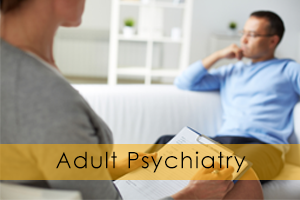 Prajna Ayurcare
Prajna Ayurcare
 Prajna Ayurcare
Prajna Ayurcare
Helping your mind To Be You
Mental Health Care With Prajna Ayurcare
Prajna ayurcare focuses on mental health. Prajna is a sanskit word which means wisdom.
Prajaparadha means the derangement of wisdom. It occurs when a person acts against their
better judgement, ignores their inner wisdom or make choices that are not in harmony
with their constitution or the natural order. This concept highlights the importance
of aligning one’s actions with their inner wisdom for overall well-being.
Ayurveda is a medical science which enhances the life by emphasising physical as well
as mental health. The fundamental principles of Ayurveda include Agni (digestive fire),
doshas ( vata, pitta, kapha), prakriti etc. Ayurveda treatment approach is based on
individualized care, mind – body connection , prevention and wellness.
Mental health is essential for overall well-being and quality of life. It enables
individuals to cope with stress, maintain healthy relationships, work productively,
make proper decisions and enjoy life. It is crucial to prioritize mental health through
self care and seeking support when needed and reducing the stigma surrounding mental
health issues.
Here are some key principles of mental health in Ayurveda:
Dosha Balance
Ayurveda identifies three doshas (Vata, Pitta, and Kapha) that govern various aspects of our physical and mental health. Imbalances in these doshas can lead to mental health issues. Treatment often involves rebalancing these doshas through diet, lifestyle, and herbal remedies.
Lifestyle
Ayurveda emphasizes the importance of a balanced daily routine (Dinacharya) to maintain mental equilibrium. This includes proper sleep, regular exercise, and stress management practices like yoga and meditation.
Diet
Ayurvedic nutrition plays a crucial role in mental health. Specific dietary recommendations are made based on an individual's dosha constitution. For example, calming foods may be suggested for Vata imbalances, while cooling foods are recommended for Pitta imbalances.
Meditation and Yoga
Ayurveda promotes the practice of yoga and meditation to calm the mind and reduce stress. These practices are believed to enhance mental clarity and emotional stability.
Herbal Remedies
Ayurvedic herbs and formulations are used to address mental health issues. For instance, herbs like Brahmi and Ashwagandha are known for their calming and rejuvenating properties.
Pranayama
Controlled breathing exercises (pranayama) are a part of Ayurvedic practices and can help regulate the mind and reduce anxiety.
Detoxification
Ayurveda often recommends periodic detoxification (Panchakarma) to remove physical and mental toxins that may contribute to mental health problems.

DR. JAYASREE VIJAYAN MD(Ay)
Ayurveda psychiatrist /
Manasika specialist
MD in Manovigyan avum manas roga from VPSV Ayurveda college, Kottakkal, Malappuram.
Services Offered:
 Mental health of children and adolescence
Mental health of children and adolescence
 Mental health of adults (all genders)
Mental health of adults (all genders)
 Mental health of oldage people
Mental health of oldage people
 Sexual health / fertility care
Sexual health / fertility care
 Physical and mental fitness
Physical and mental fitness
 Mom and baby care
Mom and baby care
Mental Illness & Cure
Dementia
Dementia is a broad term used to describe a group of cognitive impairments that interfere with an individual's daily functioning and quality of life. It is not a specific disease but rather a syndrome that encompasses a range of symptoms associated with cognitive decline. Dementia primarily affects memory, thinking, problem-solving abilities, language, and the ability to perform everyday tasks.
Symptoms
Dementia symptoms can vary but often include memory loss, confusion, difficulty with language and communication, impaired reasoning and judgment, and changes in behavior and personality. These symptoms typically worsen over time.
Treatment
Treatment focuses on managing symptoms, slowing the progression of the disease when possible, and providing support to both individuals with dementia and their caregivers. Medications and non-pharmacological interventions, such as cognitive stimulation and behavioral therapies, may be used.

Depression

Depression, also known as major depressive disorder (MDD) or clinical depression, is a common and serious mental health condition characterized by persistent feelings of sadness, hopelessness, and a lack of interest or pleasure in activities that were once enjoyed. It is more than just feeling down temporarily; depression is a long-lasting and often recurring condition that can significantly impact a person's daily life, relationships, and physical health.
Symptoms
Depression can manifest in a variety of ways, but common symptoms include a persistent low mood, loss of interest or pleasure in activities, changes in appetite and weight, sleep disturbances (insomnia or oversleeping), fatigue, feelings of worthlessness or guilt, difficulty concentrating, and thoughts of death or suicide.
Treatment
Depression is a highly treatable condition. Treatment options include psychotherapy (talk therapy), medication, lifestyle changes, and support from friends and family. In many cases, a combination of treatments is most effective.

